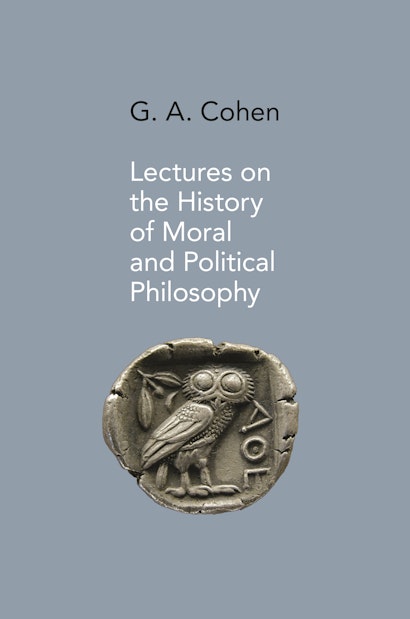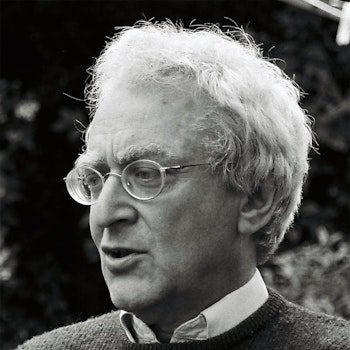G. A. Cohen was one of the leading political philosophers of recent times. He first came to wide attention in 1978 with the prize-winning book Karl Marx’s Theory of History: A Defence. In subsequent decades his published writings largely turned away from the history of philosophy, focusing instead on equality, freedom, and justice. However, throughout his career he regularly lectured on a wide range of moral and political philosophers of the past. This volume collects these previously unpublished lectures.
Starting with a chapter centered on Plato, but also discussing the pre-Socratics as well as Aristotle, the book moves to social contract theory as discussed by Hobbes, Locke, and Hume, and then continues with chapters on Kant, Hegel, and Nietzsche. The book also contains some previously published but uncollected papers on Marx, Hobbes, and Kant, among other figures. The collection concludes with a memoir of Cohen written by the volume editor, Jonathan Wolff, who was a student of Cohen’s.
A hallmark of the lectures is Cohen’s engagement with the thinkers he discusses. Rather than simply trying to render their thought accessible to the modern reader, he tests whether their arguments and positions are clear, sound, and free from contradiction. Throughout, he homes in on central issues and provides fresh approaches to the philosophers he examines. Ultimately, these lectures teach us not only about some of the great thinkers in the history of moral and political philosophy, but also about one of the great thinkers of our time: Cohen himself.
G. A. Cohen (1941-2009) was the Chichele Professor of Social and Political Theory at All Souls College, University of Oxford, from 1985 to 2008. At the time of his death, he held the Quain Chair in Jurisprudence at University College London. His books include Finding Oneself in the Other and On the Currency of Egalitarian Justice, and Other Essays in Political Philosophy (both Princeton). Jonathan Wolff is professor of philosophy and dean of the Faculty of Arts and Humanities at University College London.
"What this collection provides . . . is a very idiosyncratic tour of the history of moral and political philosophy. The tour is very selective as to where it stops, and when it does stop it is equally selective in the sights it shows. And so it's not a tour I'd recommend to a complete newcomer to the area. But for the experienced traveler in this intellectual terrain, the sights on the tour are, almost without exception, well worth the extended stop provided."鈥擯eter Stone, Marx and Philosophy Review of Books
"Wolff's closing intellectual biography is, as I mentioned above, excellent. It provides an overview of the rest of Cohen's work that is useful and interesting even to those already familiar with it."鈥擟lare Chambers, Philosophical Quarterly
"This collection of lectures鈥攅rudite, demanding, and precise, yet funny and accessible鈥攃aptures Jerry Cohen's inimitable voice and sparkling brilliance. Whether discussing Plato, Locke, Marx, or Nietzsche, Cohen guides the reader through the historical context while rejuvenating its urgency by interweaving modern political concepts. Cohen's rare approach鈥攃ombining charitable interpretation, intellectual honesty, analytical clarity, and a love of teaching鈥攅xemplifies how to treat historical texts as contemporary interlocutors."鈥擲eana Shiffrin, UCLA School of Law
"These essays demonstrate brilliantly Cohen's intellectual commitment to going naked into the debating chamber. Arguments are broken down, reconstructed, analyzed, and evaluated with such perspicuity that readers can pinpoint precisely where their own judgments diverge from Cohen's, while being challenged to match his standards in responding. It is a measure of the sharpness of Cohen's intellect that even the essay on Nietzsche, where his knowledge is most limited, offers insights and arguments of real merit."鈥擠avid Owen, University of Southampton
"Jerry Cohen prepared his lectures with the same meticulous care as his published writing. This collection shows him engaging with some of the greatest thinkers of the past, scrutinizing their ideas and doing his best to formulate them to match his own high standards of clarity and precision. Those meeting Cohen here for the first time will encounter his unique voice: unrelenting in its pursuit of an argument but never petty or pedantic. It is a book from which we can all learn."鈥擬ichael Rosen, Harvard University


